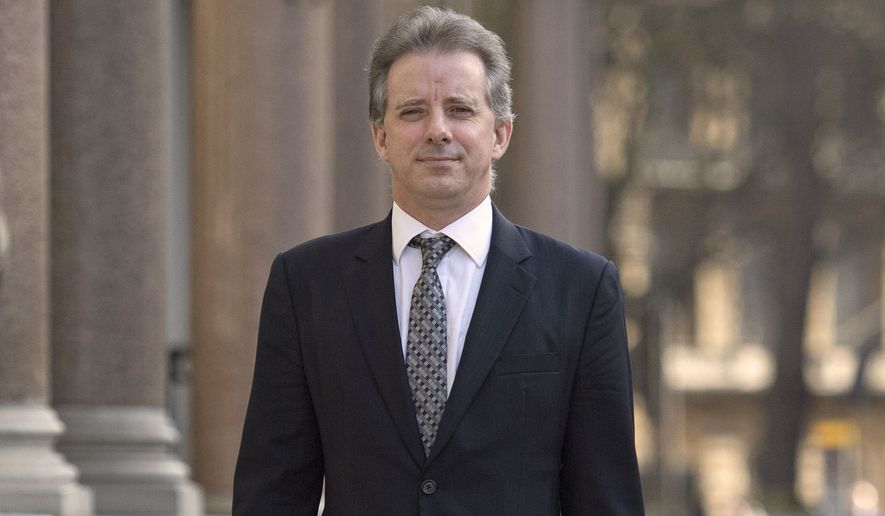Not only was the anti-Trump dossier fueled by Russian disinformation, but the FBI knew it was likely tainted at the time the bureau was citing the document to obtain secret spying warrants on a Trump campaign figure, according to information declassified Wednesday from an inspector general’s report.
One member of the FBI team investigating the Trump campaign even got information in January 2017 that Russian intelligence “may have targeted Orbis,” the company of Christopher Steele, according to Justice Department Inspector General Michael E. Horowitz’s report.
The FBI learned in February 2017 that Russian intelligence managed to infiltrate a source into the network of informants Mr. Steele used. Indeed, Russian intelligence was aware of Mr. Steele’s anti-Trump efforts as far back as early July 2016, even before the FBI opened its investigation, the inspector general’s report says.
Those details were in footnotes that were redacted when the report was issued late last year. But under pressure from two top GOP investigative senators, the information was declassified Wednesday.
“As we can see from these now-declassified footnotes in the IG’s report, Russian intelligence was aware of the dossier before the FBI even began its investigation and the FBI had reports in hand that their central piece of evidence was most likely tainted with Russian disinformation,” said Sens. Charles E. Grassley and Ron Johnson.
That Russian disinformation found its way into Mr. Steele’s work had long been suspected, but the declassified information from Mr. Horowitz’s report is the first official confirmation.
Mr. Grassley and Mr. Johnson revealed some of the previously classified information late last week. The information released Wednesday comes from still more declassified information from the footnotes of Mr. Horowitz’s report.
The new information was declassified with the cooperation of the acting Director of National Intelligence Richard A. Grenell and Attorney General William P. Barr.
Mr. Grassley, the Senate’s senior Republican, and Mr. Johnson, chairman of the Senate’s key oversight committee, praised Mr. Horowitz for looking at the roots of the FBI’s probe into President Trump’s campaign — a probe that turned into a special counsel’s investigation.
That investigation, by Robert Mueller, concluded there was in fact no evidence that Mr. Trump conspired with Russia to subvert the election — though Mr. Mueller suggested the president may have obstructed justice by trying, without success, to hinder the investigation.
Based on the new information from Mr. Horowitz, it now appears that it was the Clinton campaign that injected Russian disinformation into American politics.
The Clinton campaign and the Democratic National Committee paid for Fusion GPS, which paid Mr. Steele to compile the anti-Trump dossier.
The dossier would be conveyed to the FBI during the 2016 campaign and was used to obtain a warrant to conduct secret spying on Carter Page, who had been an advisor to the Trump campaign.
Mr. Horowitz has found a number of problems with that warrant, and the FBI says it has taken steps to fix things.
• Stephen Dinan can be reached at sdinan@washingtontimes.com.




Please read our comment policy before commenting.